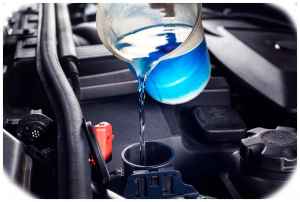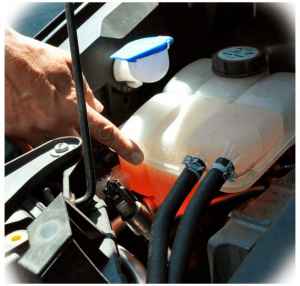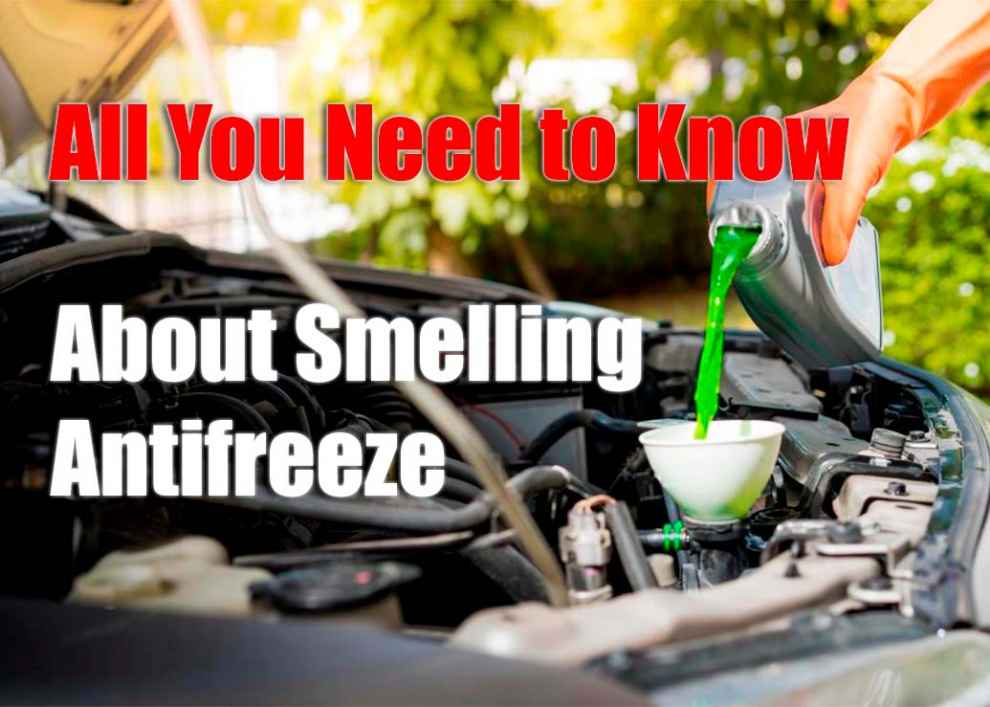Did you know that the smell of antifreeze is extremely distinct, and many people can often detect it in the air? Antifreeze is a liquid used to provide cooling and lubrication for engines, and it has a very particular smell. If you’ve ever encountered antifreeze in some way, chances are you’ll never forget its unmistakable odor. But why does antifreeze smell so strong? In this article, we’ll explore all you need to know about smelling antifreeze.
Why Does Antifreeze Smell?

How to Detect an Antifreeze Leak
Antifreeze leaks are common in vehicles and can be difficult to detect, as the liquid is colorless and odorless. The most obvious way to detect an antifreeze leak is by smell. Antifreeze has a distinct sweet smell when it evaporates that is easily identifiable. If you’re suspicious of a potential antifreeze leak, you should check your car’s radiator, hoses, and other coolant-containing areas for any signs of leakage. Additionally, if you experience any sudden temperature changes while driving or if your vehicle’s temperature gauge indicates a rise in temperature, this could be an indication of an antifreeze leak. Also read about Best Radiator for Jeep.
Table: Antifreeze Leaks
|
Cause |
Symptoms |
Solution |
| Cracked or faulty radiator, water pump, or hoses | Sweet smell in the car, engine overheating and running poorly, visible coolant leak under the car. | Replace any cracked or faulty components with new parts. Inspect all hoses and connections to ensure they are secure and free from leaks. Pressure test the cooling system to check for any further issues. If necessary, flush cooling system and replace antifreeze with new coolant solution. |
| Loose radiator cap or pressure tank cap | Visible coolant leak under the car and sweet smell in the car. | Tighten or replace any loose caps on the radiator or pressure tank. Check for any further leaks from pipes connected to the radiator/pressure tank and repair as necessary. Pressure test cooling system to check for any further issues. If necessary, flush cooling system and replace antifreeze with new coolant solution. |
| Blocked radiator core fins (airflow restriction) | Engine overheating but no visible leaks or sweet smells in the car. | Clean out any debris blocking airflow in radiator |
Preventing Antifreeze Leaks
Preventing antifreeze leaks is an important part of regular vehicle maintenance. Leaks can be caused by a variety of factors, including corrosion and physical damage to the coolant system. Proper maintenance can help reduce the likelihood of leaks and protect your engine from costly repairs.

Replace Old Hoses: Over time hoses can become brittle and crack due to exposure to heat and engine vibration. Regularly replacing old hoses with new ones will help ensure that the entire cooling system is functioning properly and free from any possible leaks.
Check for Corrosion: Inspecting coolant tanks for signs of corrosion is essential as corrosion can cause small holes in plastic tanks leading to fluid loss. Using a solution specifically designed for ridding the inside walls of tanks from scale buildup will go a long way in preventing corrosion-related leaks.
Change Coolant Regularly: Antifreeze should be changed every two years or 24,000 miles to ensure optimal cooling system performance. Flushing out the old coolant and replacing it with fresh antifreeze will help keep the cooling system running clean and efficiently as well as reduce the likelihood of a leak occurring.
Check Radiator Cap: The radiator cap should be checked regularly for any signs of wear or damage. A damaged or worn out radiator cap can lead to pressure buildups inside the cooling system, eventually leading to a leak occurring somewhere in the system.
Conclusion
By following these simple maintenance steps, you can help prevent costly antifreeze leaks from happening in your vehicle. Regularly inspecting hoses and connections for signs of deterioration, replacing old hoses, checking for corrosion, changing coolant regularly, and examining the radiator cap are all key components in keeping your engine running smoothly and free from leaks.

Add Comment